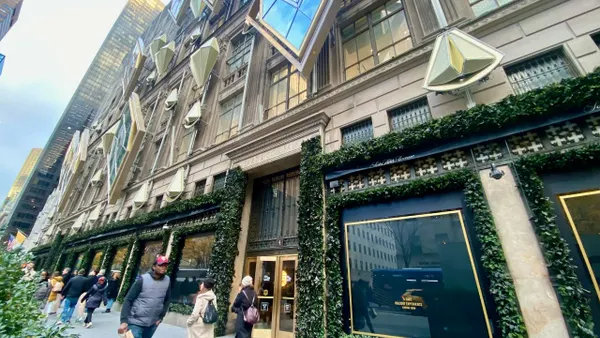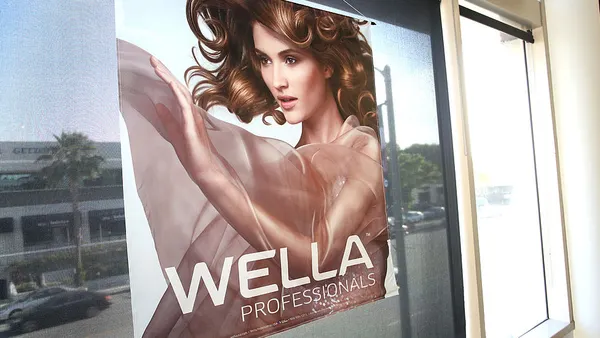Dive Brief:
-
Ralph Lauren last week announced major changes to its New York City footprint, including a lease with more space in the Starrett-Lehigh Building on West 26th Street, where the company last year moved its North America business operations.
-
The company's global corporate headquarters will remain at 650 Madison Avenue, the company said in a press release emailed to Retail Dive on Wednesday.
-
But that will also entail relocating employees from 625 Madison Avenue, 550 Seventh Avenue "and several other Midtown locations," according to the release.
Dive Insight:
Ralph Lauren's moves set off a buzz in New York, as major real estate transactions there always do, and experts say it says a lot about the brand, which is in the midst of a turnaround.
That cityscape has thrived despite major challenges that would have decimated other markets. "Rents for high profile spaces in New York have been remarkably resilient with very quick and sustained recoveries following both 911 [sic] and the Great Recession," retail analyst Nick Egelanian, president of retail development consultants SiteWorks International, told Retail Dive in an email. "I don't know the specifics of the Ralph Lauren lease, but I can tell you that high profile locations like this can make a lot of money for hot retailers but can just as quickly become a huge cash drain when rents are sky high and sales flatten."
In New York, industry observers have noticed more "high visibility vacancy" in the last 24 months, he also said. "This is one of many big name retailers that have been abandoning flagship locations."
The company shuttered its 5th Avenue Polo flagship last year as part of a real estate downsizing wrought by its turnaround effort.
Women's Wear Daily said the brand's departure from 12 floors at 550 Seventh Avenue in the garment district "could signal the end of the reign of the 24-story Art Deco building as the city's premiere fashion destination."
While it may be tempting to nail e-commerce for Ralph Lauren's shrinking footprint, it has more to do with how the brand is doing in a new retail era, according to Egelanian. "We are really just in an age of retail maturity in the [United] States and retailers that become stale or do not react to changing American shopping patterns or tastes can fall from grace VERY QUICKLY," he said. "Ralph Lauren fits this bill."
The brand personifies a tony white privilege that has fallen out of favor among diversity-minded younger consumers yet doesn't resonate in low-income rural areas, either, according to branding strategist Brian Kelly, president of consultancy Brian Brands. "From Polo, Ralph fashioned a lifestyle of 'privilege.' It was fundamentally patriarchal, white privilege with all the hallmarks of WASP East Coast wealth," he told Retail Dive in an email. "There will always be people who prefer an elitist point of view, or preppy. It's just a way smaller market."
Correction: An earlier version of this story was unclear about which leases Ralph Lauren will vacate. Ralph Lauren closed the Polo flagship on 5th Avenue last year.












